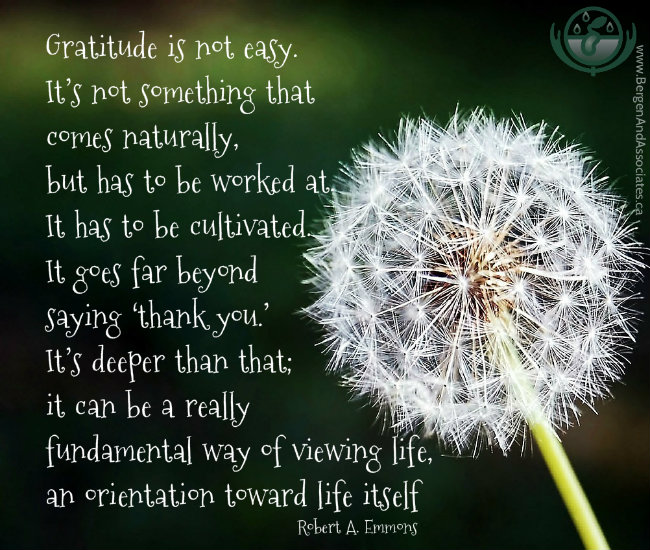Refreshed and presented again from our archives…some ideas are just worth repeating!
If you knew of a strategy that could make your teen 15% more satisfied with their lives, 15% greater sense of meaning in their lives, 17% more happy and hopeful, and have 13% drop in negative emotions as well as 15% drop in depression…would you pay for it?
Would you?
And if it were free? Would you do it if it were free?
It is.
The strategy?
Drum roll please…. (hands on the table thrumming rapidly here)
Gratitude.

Yep. That’s it. Being thankful makes a huge difference in teenagers lives. It was a study done in New York, with 700 teens over 4 years from a wide variety of ethnic and socioeconomic backgrounds:
Bono said there’s a strong link between having a sense of satisfaction with life and feeling grateful. “People who are grateful are more optimistic and hopeful, feeling they have the resources to be successful in their future,” said Bono….
Interestingly, socioeconomic status doesn’t appear to be linked to gratefulness. “You don’t have to be rich to feel grateful,” said Bono. “We’ve found poor kids are very appreciative when other people help them out.”
Miller agreed. “I see Medicaid kids and children from wealthy homes in Westchester County, and I don’t see any greater or lesser sense of gratitude from one group or another. It’s fairly low in both groups,” he said. “Unfortunately, our society isn’t focused much on gratefulness; it’s become out of vogue to talk about it,” said Miller. “But I give these researchers credit for reviving interest in the topic.”
Miller said he often asks kids what they’re grateful for. When they can’t identify anything much at all, he sees it as a danger sign of increased risk of severe depression and suicide. But developing a sense of gratitude in kids can help prevent the gradual erosion of self-esteem and build their sense of purpose and ability, he noted.How can parents help install a sense of gratitude in their children? Bono suggested parents start paying attention to their own sense of gratefulness and model it. “Talk about what you’re grateful for, and ask your kids what they appreciates,” he said. He also advised mentioning people who have helped in their lives: a teacher who stayed after class, a coach who made a difference. “Talking about gratitude helps guide us all to the things that matter most,” he noted. (emphasis mine)
We can do this, folks. We can do this. It’s do-able. We can teach the next generation how to be grateful…better yet, we’ll show’em how to be grateful. It’s soul-inspiring and life-giving for all of us to notice:
Years ago, we had a nightly ritual with the junior tribe members to list things that happened during the day for which there was gratitude. My junior tribe member was very young, able to utter only single words, and often relied on gestures. Frequently, he would point to the tiny divot in the wall near his bed, where the drywallers had done a less-than-perfect job and the faint outline of a nail showed through the plaster and paint. And I would ask, “You’re grateful for the nail?” and he would nod.






Write a Comment